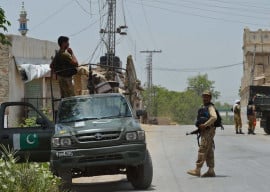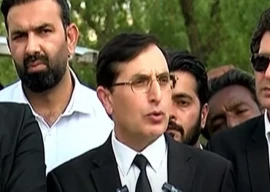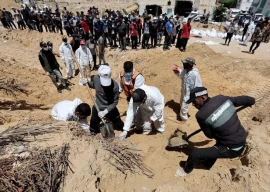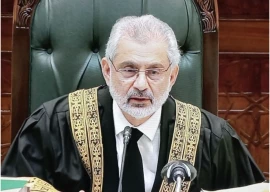
Secretary of State Hillary Clinton, who on Monday urged Pyongyang to embrace "the path of peace", has set out US parameters for what would be necessary for improved relations, State Department spokeswoman Victoria Nuland said.
"This was intended to be a signal of our expectations and hopes for the new regime," Nuland said.
"We want to see the new leadership of the DPRK (North Korea) take their country in the direction of denuclearization, in the direction of compliance with their international obligations and commitments."
She said Washington was also looking for signs that Pyongyang would seek improved relations with its neighbors, particularly South Korea, and open the door to promoting the rights of its people.
The United States has reacted cautiously to Kim's death, which has left his youngest son, Kim Jon-un, in charge of the unpredictable and isolated country that has repeatedly fanned fears of nuclear conflict across North Asia.
Six-party talks involving the two Koreas, the United States, China, Japan and Russia broke down in 2008 and United Nations inspectors were expelled from North Korea in 2009.
Efforts to resume the negotiations have been fruitless, while tensions increased in 2010 after North Korean's sinking of a South Korean warship and shelling of a South Korean island.
Nuland said Clinton had spoken with both Chinese Foreign Minister Yang Jiechi and Russian Foreign Minister Sergei Lavrov, and that all agreed on the need for "peace, stability and calm" on the Korean peninsula.
Ready to keep working
US officials said that with North Korea in mourning, they do not expect immediate progress, but hope the new leadership may eventually take steps to address the nuclear issue and provide monitoring guarantees that could allow the resumption of food aid suspended since 2008.
"Given the mourning period frankly we don't think we'll be able to have much more clarity and resolve these issues before the new year. But obviously we stand ready to keep working on this," Nuland said.
In a sign that some discussions were continuing, she said US officials had been in touch with their North Korean counterparts following Kim's death over the weekend to discuss technical aspects of the food aid question.
US and North Korean officials met in the Chinese capital last week to discuss food aid, but the American officials described the talks as inconclusive.
Washington, backed by its close ally South Korea, has said it still has questions over both North Korea's need for food aid and their ability to monitor aid shipments to ensure they reach the neediest.
The United Nations has said poor harvests and bad weather have exacerbated North Korea's chronic food shortages, leaving millions in need of food assistance.
Nuland said the contact occurred on Monday through what is known as "the New York channel" -- North Korea's mission to the United Nations -- but she was unable to say whether it involved any political discussion of the ramifications of Kim's death.
"I can't speak to whether it was broader, but it was at a technical level and it was designed to make clear that we still had questions with regard to the nutritional assistance," Nuland told reporters.
Jack Pritchard, a former US negotiator with North Korea and head of the Seoul-backed Korea Economic Institute, said any discussion was likely symbolic.
"I would only question the timing. I can't imagine technical stuff being shared at this point; maybe areconfirmation of direction of where things were headed," Pritchard said. "I would be doubtful State got any meaningful answers."
COMMENTS (1)
Comments are moderated and generally will be posted if they are on-topic and not abusive.
For more information, please see our Comments FAQ



















1713893627-4/Shredded-10,000-yen-bill-(1)1713893627-4-270x192.webp)

1713889672-1/Plastic-waste-(2)1713889672-1-270x192.webp)






















The late Kim Jong-il wouldn't have been that strong without the support of the state power - The Workers' Party, the military and the security apparatus - strengthened during the last six decades of the dynastic regime. These units seem to be functioning and see the preservation of the country's political, economic and social system as their highest priority. So Kim Jong-un will rule with a regency government. The coming months are crucial for the world to see, in which direction North Korea is heading.